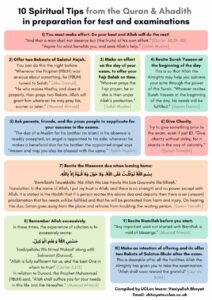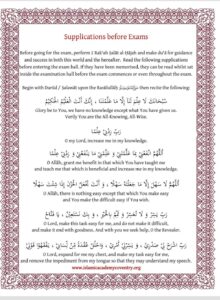By Hadrat Mawlānā Muhammad Saleem Dhorat hafizahullāh
After the passing of Ramadān, it is important that we remind ourselves of the most important lesson the blessed month left us with, that of bringing Taqwā into our lives and doing our utmost to hold fast to it, until we breathe our last.
The importance of Taqwā cannot be over emphasised. Allāh ta‘ālā has mentioned the word Taqwā in the Glorious Qur’ān around 70 times in the imperative form and over 250 times in its various derivative forms. The Glorious Qur’ān begins with the statement:
This Book has no doubt in it – a guidance for the Muttaqīn. (2:2)
In other words, though in principle the Glorious Qur’ān is a guidance for all, only those who develop the quality of Taqwā can truly benefit from it.
Definition of Taqwā
Taqwā has been defined in many ways; the summary and conclusion of which is that a person creates a barrier between himself and the disobedience to Allāh ta‘ālā. Consequently, he will never plan to commit a sin, rather he will exert all efforts to abstain from any form of disobedience to Allāh ta‘ālā. The result of this will be every type of success in both worlds. Allāh ta‘ālā states:
…And fear (disobeying) Allāh so that you may become successful. (3:200)
Benefits of Taqwā
There are many benefits for the one who adopts Taqwā as stated in the Glorious Qur’ān:
1. Allāh ta‘ālā will make all matters easy for him. Allāh ta‘ālā states:
.…And the one who fears (disobeying) Allāh, He shall bring about ease for him in his affair. (65:4)
2. Allāh ta‘ālā will provide him with a solution to all his problems. Allāh ta‘ālā states:
.…And the one who fears (disobeying) Allāh, He shall bring forth a way out for him, (65:2)
3. Allāh ta‘ālā will sustain him from all aspects. Allāh ta‘ālā states:
(And the one who fears (disobeying) Allāh).… And shall provide for him (what he needs) from where he does not even imagine (65:3)
4. Allāh ta‘ālā will be with him and assist him. Allāh ta‘ālā states:
Surely, Allāh is with those who adopt Taqwā (16:128)
….be sure that Allāh is with the Muttaqīn (9:36)
5. Allāh ta‘ālā will forgive his sins. Allāh ta‘ālā states:
.…And the one who fears (disobeying) Allāh, He shall cancel (forgive) his sins… (65:5)
6. Allāh ta‘ālā will grant him a huge reward. Allāh ta‘ālā states:
(And the one who fears (disobeying) Allāh)….He shall give him a huge reward. (65:5)
7. Allāh ta‘ālā will grant him Mercy in both worlds. Allāh ta‘ālā states:
And this (Qur‘ān) is a blessed Book We have sent down. So follow it and adopt Taqwā, so that you may be favoured with mercy. (6:55)
And My Mercy extends to everything. So, I shall write it (i.e. the mercy) for those who adopt Taqwā, and pay Zakāh, and those who do believe in Our verses… (7:156)
8. Allāh ta‘ālā will grant him safety from all fear and grief. Allāh ta‘ālā states:
…those who adopt Taqwā and correct themselves will have no fear, nor shall they grieve. (7:35)
9. He will gain the upper hand over Shaytān. Allāh ta‘ālā states:
Surely when the Muttaqīn are touched by the temptation (to do evil) from Shaytān, they become conscious (of Allāh), and their eyes instantly open (i.e. they realise Shaytān’s plot and ignore the temptation). (7:201)
10. He will become beloved to Allāh ta‘ālā. Allāh ta‘ālā states:
Surely, Allāh loves the Muttaqīn. (9:4)
11. Allāh ta‘ālā will grant him safety from enemies. Allāh ta‘ālā states:
If you keep patience and adopt Taqwā, their cunning shall not harm you at all. (3:120)
12. Allāh ta‘ālā will grant him the ultimate success in the form of Jannah. Allāh ta‘ālāstates:
Here is the description of the Paradise promised to the Muttaqīn: underneath it the rivers flow; its food is everlasting and (so is) its shade. This is the ultimate abode of the Muttaqīn … (13:35)
The Acquisition of Taqwā
In order to become deserving of these priceless benefits, it is very important that we make a serious effort to bring Taqwā into our lives. Allāh ta‘ālā through His infinite mercy informs us how to achieve this, as when Allāh ta‘ālā commands the adoption of Taqwā in the Glorious Qur’ān, He follows this with another command which is a way to acquire Taqwā. The following actions are a summary of these commands, which if inculcated, will ensure a person acquires Taqwā:
1. Submission to the Will of Allāh ta‘ālā.
Allāh ta‘ālā states:
O you who believe, fear (disobeying) Allāh, as one should with regards to Allāh, and let not yourself die save as Muslims (totally submitted to Allāh). (3:102)
The submission of the body and soul to the Will of Allāh ta‘ālā enables us to inculcate the essence of Taqwā in our lives. Submission to the Will of Allāh ta‘ālā was the highlight of the life of Sayyidunā Ibrāhīm ‘alayhis salām who is duly remembered in these blessed months. Taking lesson from episodes of submission by the Ambiya‘alayhimus salām and the pious predecessors gives us an insight into the reality of submission. Only when we try to emulate such submission to the Will of Allāh ta‘ālā, will the great quality of Taqwā diffuse into a person’s heart.
2. Adopting correct speech.
Allāh ta‘ālā states:
O you who believe, fear (disobeying) Allāh, and speak in straightforward words. (If you do so,) Allāh will correct your deeds for your benefit, and forgive your sins for you. Whoever obeys Allāh and His messenger achieves a great success. (33:70-71)
The importance of speaking in a truthful and just manner and speaking of good things, in particular the remembrance of Allāh ta‘ālā, must not be taken lightly. The guarantee of Jannah has been promised by Rasūlullāh sallallāhu ‘alayhi wasallam to the person undertaking to use his tongue correctly. Being mindful of what one utters will assist in bringing a reformation to the heart and develop Taqwā.
3. Contemplating the Day of Reckoning.
Allāh ta‘ālā states:
O you who believe, fear (disobeying) Allāh, and each person must consider what he (or she) has sent ahead for tomorrow. (59:18)
Keeping a watchful eye over one’s actions and reflecting on how they will be judged by Allāh ta‘ālā on the Day of Resurrection, will lead a person to adopt Taqwā.
4. Being conscious that Allāh ta‘ālā is All-Seeing and All-Knowing.
Allāh ta‘ālā states:
…And fear (disobeying) Allāh. Surely Allāh is fully aware of what you do. (59:18)
Recognising the fact that Allāh ta‘ālā is fully aware of our actions and is recording every minute detail of our lives, is sufficient for a person to create a barrier between himself and the disobedience to Allāh ta‘ālā.
5. Adopting pious company.
The above four methods of acquiring Taqwā all share a common trait, that of being fully aware and alert at all times. Whilst living in this world we become engrossed in our daily lives, which leads to negligence and absent mindedness. Therefore, it is imperative that we frequently adopt some form of reminder for ourselves. The adopting of pious company gives a person a two-fold benefit in the endeavour to bring Taqwā: it serves as a constant reminder of the need to acquire Taqwā; and the company of the pious is in itself an effective tool for the acquisition of Taqwā. Allāhta‘ālā states:
O you who believe, fear (disobeying) Allāh, and be in the company of the truthful (i.e. pious). (9:119)
And regarding the truthful, Allāh ta‘ālā says:
Those are the ones who are truthful, and those are the Muttaqīn. (2:177)
May Allāh ta‘ālā grant us all the tawfīq to strive for the great quality of Taqwā. Āmīn.
© Riyādul Jannah (Vol. 25 No. 8, Aug 2016)
• Please forward this message on to all your contacts •





